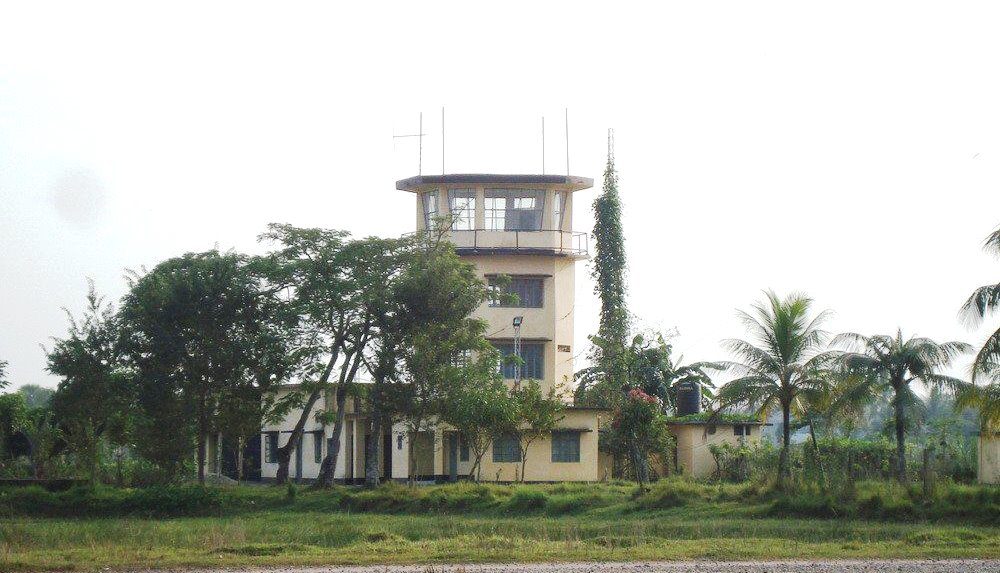Beneath the tangled grass and fractured tarmac of Comilla’s deserted airport, rests a faded legacy — a once-bustling airfield that soared through the tumult of World War II, now reduced to a ragged practice track for drivers and a crumbling stretch of road.
For fifty years, the roar of propellers has vanished, replaced by the quiet weight of neglect and the echoes of lost potential, reports UNB from Dhaka.
Once bustling with activity, Comilla Airport has remained neglected, its future grounded not by lack of potential, but by the reluctance of the authorities to invest in its revival.
And yet, in the wind that whispers across its empty runway, there is renewed hope.
Civic leaders and business elites are uniting their voices, calling for the long-awaited resurrection of the airport — a move they say will ignite economic growth and draw much-needed foreign investment to the region.
The story of this forgotten air hub dates back to 1940, when the airport was constructed near Neura-Dhulipara as a military base during World War II. It faithfully served both military and civilian flights until 1976, with the army primarily operating it on domestic routes until 1966.
Thereafter, it was opened to the public for 10 short years before falling into disuse.
Though passenger and cargo flights ceased long ago, the airport is far from obsolete. It continues to function as a vital signal relay station for international aviation, guiding 25 to 30 flights daily — most notably on Indian domestic routes and those heading to Agartala, Bangkok, and Singapore.
For this service, it earns a respectable Tk 30 to 40 lakh in monthly revenue.
Despite its faded glory, airport officials believe that just a modest investment of approximately Tk 30 crore could breathe life back into the runway.
The airport was originally established on 210 acres of land. In 1999, 103 acres were handed over for the Comilla Export Processing Zone (EPZ), leaving the airport with 77 acres, much of which now lies unused.
A private cattle farm grazes across a section of the property and the airstrip has slowly been reclaimed by nature. The airport’s jurisdiction now spans several localities under the Comilla City Corporation — Neura, Dhulipara, Rajapara, Unaisar, Dishaband, and Rasulpur.
Roads once built for aircraft now serve the daily commute of city residents. Yet the bones of the airport remain intact. A skeleton staff of 22, including two officers, still watch over its quiet halls. The terminal stands still with the air traffic control tower dormant.
What is needed, according to officials, are runway carpeting, fire services activation, and recruitment of skilled personnel.
“Just a small investment could bring this airport back to life,” said Nasir Uddin Ahmed, Communication Networking Engineer at Comilla Airport. “If the government prioritises it, reopening the airport won’t take long,” he said.
His optimism is shared by many in Comilla’s business community as Jamal Ahmed, vice president of the Comilla Chamber of Commerce and Industry, sees the airport as a lifeline for industrial growth.
“The airport’s reopening would make travel easier for foreign investors, leading to job creation for thousands. We urgently need the airport operational for the growth of Comilla’s industrial sector,” he said.
Md Firoz Khandaker, managing director of Khandaker Food Industries in Comilla BSCIC, added, “We currently export products like vermicelli to Malaysia and India’s Assam. Soon, we plan to expand to Saudi Arabia and Dubai. If the airport were open, buyers could visit easily, and we could ship urgent goods by air.”
Beyond industry, the airport carries sentimental and practical value for the local population. With one of the highest numbers of expatriates in the country, Comilla’s need for a functioning domestic airport is both real and pressing, adds the UNB report.
“Comilla has one of the highest expatriate populations in the country,” said Ahmed Shoeb Sohel, general secretary of Comilla Club. “There is a strong demand for domestic flights and this airport could serve that need while boosting foreign investment.”


